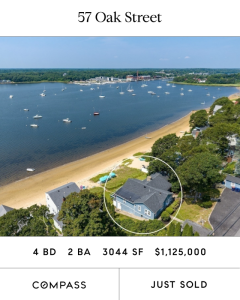Former war prisoner celebrates book release
 Fred Hanack, 94, at the Cottages at Dartmouth Village. Photo by: Kate Robinson
Fred Hanack, 94, at the Cottages at Dartmouth Village. Photo by: Kate Robinson Hanack with daughter Beatrice Bigda and son-in-law William.
Hanack with daughter Beatrice Bigda and son-in-law William. Hanack prepares books for the book signing, at which only his family and Cottages residents were allowed due to the pandemic.
Hanack prepares books for the book signing, at which only his family and Cottages residents were allowed due to the pandemic. Hanack with his little sister Uschi in 1931. Courtesy: Fred Hanack
Hanack with his little sister Uschi in 1931. Courtesy: Fred Hanack Hanack and Uschi in autumn 1943. He was 17, and already in the Anti-Aircraft Auxiliary. Courtesy: Fred Hanack
Hanack and Uschi in autumn 1943. He was 17, and already in the Anti-Aircraft Auxiliary. Courtesy: Fred Hanack Hanack in the army. Courtesy: Fred Hanack
Hanack in the army. Courtesy: Fred Hanack Hanack’s parents’ home in Lehnin around 1944. It was taken by the East German authorities at the end of the war. Courtesy: Fred Hanack
Hanack’s parents’ home in Lehnin around 1944. It was taken by the East German authorities at the end of the war. Courtesy: Fred Hanack Hanack in the USSR in 1949. Courtesy: Fred Hanack
Hanack in the USSR in 1949. Courtesy: Fred Hanack Fred Hanack, 94, at the Cottages at Dartmouth Village. Photo by: Kate Robinson
Fred Hanack, 94, at the Cottages at Dartmouth Village. Photo by: Kate Robinson Hanack with daughter Beatrice Bigda and son-in-law William.
Hanack with daughter Beatrice Bigda and son-in-law William. Hanack prepares books for the book signing, at which only his family and Cottages residents were allowed due to the pandemic.
Hanack prepares books for the book signing, at which only his family and Cottages residents were allowed due to the pandemic. Hanack with his little sister Uschi in 1931. Courtesy: Fred Hanack
Hanack with his little sister Uschi in 1931. Courtesy: Fred Hanack Hanack and Uschi in autumn 1943. He was 17, and already in the Anti-Aircraft Auxiliary. Courtesy: Fred Hanack
Hanack and Uschi in autumn 1943. He was 17, and already in the Anti-Aircraft Auxiliary. Courtesy: Fred Hanack Hanack in the army. Courtesy: Fred Hanack
Hanack in the army. Courtesy: Fred Hanack Hanack’s parents’ home in Lehnin around 1944. It was taken by the East German authorities at the end of the war. Courtesy: Fred Hanack
Hanack’s parents’ home in Lehnin around 1944. It was taken by the East German authorities at the end of the war. Courtesy: Fred Hanack Hanack in the USSR in 1949. Courtesy: Fred Hanack
Hanack in the USSR in 1949. Courtesy: Fred HanackStory Location
United States
Anyone who has enjoyed a beach day at Round Hill this year might be surprised to learn that they have a former World War II Wehrmacht soldier and Russian prisoner of war to thank in part for the experience.
Longtime Dartmouth resident Fred Hanack celebrated the publication of his autobiography, ‘Wanderer Between Two Worlds,’ with a quiet book signing on August 14 at the Cottages at Dartmouth Village.
The book details his childhood in Germany, his time as a teenage soldier in 1944-45, and his experiences as a prisoner of war before his release in December 1949 — along with happier times bicycling around post-war Italy and France while studying to become an engineer.
After emigrating to America at the age of 28, Hanack became a family man, a professor at Bristol Community College, and the Superintendent of the Dartmouth Department of Public Works in the 1960s, where he helped the town acquire Round Hill beach by eminent domain and built the beach’s infrastructure including the access road, parking lot, and restrooms.
The 94-year-old is still active both physically and mentally, pausing to recall memories from his youth before speaking fluently in just one of his many languages.
“In that misery, everybody lost hope,” he said of wartime Germany. Hanack was just 17 when he left high school to join the German army in 1944. “I was trying to defend the country, because it looked bleak.”
Membership in the Jungvolk and Hitler Youth was required of all young citizens at that time, and part of Hanack’s high school education included military training.
He was posted to Romania, where things quickly took a turn for the worse as the Russians invaded and the Romanians, formerly allies, turned against them in the summer of 1944.
Hanack grew emotional as he tried to describe the war and his time in the prison camps.
His company was forced to march through the Carpathian Mountains to escape to Hungary, during which 18,000 of his fellows were captured. Hanack, along with a small band of 2,000 men, made it back behind German lines, where they ended up in Budapest.
After the Russians captured the city in 1945, Hanack went to Russia as a prisoner of war and was shuttled from camp to camp. He worked as a draftsman for agricultural machines in Novorossiysk, then in the coal mines at Krasny Sulin, before loading coal and collecting wicker twigs for baskets on the Donets River.
“We had no thoughts of escape,” he said firmly. “There were drastic measures that prevented it.”
Two would-be escapees were held for three days without food, water, or ventilation before being sentenced to 20 years of hard labor, he wrote in the book.
All together, Hanack spent nearly five years in the prison camps. During this time he found out that his parents had committed suicide, and his 15-year-old sister was studying to become a nurse in Berlin.
While in Russia, he said, he became a communist, but later changed his views. “It was a panacea,” he said. “I absorbed it, and I lived it.”
Upon his release in December 1949, Hanack moved to Berlin to be with his sister and family friends, as his parents’ house and property in East Germany was taken by the government.
His high school diploma was not recognized by the new authorities, so he had to re-do much of his education. After completing his studies in engineering, Hanack emigrated to Boston in 1954, a move that he described as a “relief.” He eventually became a naturalized US citizen.
When asked what brought him here, his eyes widened. “Desperation,” he said simply.
Hanack said that his book is a record, not meant to send a message.
“Writing itself came naturally,” he said. “I didn’t write [the book] for an effect, I wrote it because that was my life and I wanted to give it my own words.”
“I don’t want to preach,” he added. “[Young people] are on their own.”
But he did note that after multiple visits to his home country, he believes it has changed for the better. “I think as a nation, they have become much more prudent,” he said, adding that he hopes that the world will not forget the horrors of World War II.
And when asked about comparing the modern world to 1930s Germany, Hanack is unequivocal: “Don’t do that!”
“When 32 parties battle for victory, then you can’t believe anything,” he said. “Everybody promises everything and nobody delivers.”
‘Wanderer Between Two Worlds’ is written and self-published by Fred Hanack in Dartmouth, MA.










































